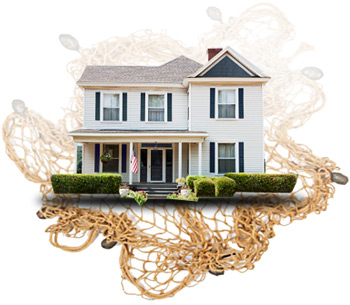“Community for Mission” defines the Lasallian charism across the world today as it has since the beginning.
For most of Lasallian history, its family members have been De La Salle Christian Brothers who have lived and worked together in schools and institutions. We call them residential communities.
 This Spirit-filled insight of De La Salle grew and expanded over our history—even during times of trauma due to wars, revolutions, and expulsions. And those periods of pain, disappointment, setback, and suffering were critical harbingers of Spirit-filled growth and expansion for the family.
This Spirit-filled insight of De La Salle grew and expanded over our history—even during times of trauma due to wars, revolutions, and expulsions. And those periods of pain, disappointment, setback, and suffering were critical harbingers of Spirit-filled growth and expansion for the family.
Sometime in the 1950s lay partners joined the mission, embraced the charism, and participated in the school community with Brothers, all while living apart from them. These Lasallians formed at school what has become known as non-residential communities. In Circular 461 Brother Álvaro wrote eloquently about how both residential and non-residential communities meet the criteria of Lasallian Association and contribute greatly to the mission.
By 1990, a new movement emerged across the United States comprised of young women and men who traditionally might be considered members of non-residential communities, yet now requesting to live in the intentional communities of the De La Salle Christian Brothers. In 25 years, over 500 Lasallians have been welcomed—they are called Lasallian Volunteers. Just recently in Portland, St. Louis and Memphis, Lasallian Volunteers—on their own and with the help of our Brothers and Lasallian family as a whole—have been able to continue their residential communities without the live-in presence of Brothers.
These developments are bittersweet to many De La Salle Brothers: sweet because of the continuation of residential communities for mission in keeping with the charism; bitter for the diminution in numbers and influence of their fellow Brothers. We Brothers collectively fear our reduced numbers will jeopardize the core value of having residential communities for the mission. We know the need of children for Brothers is very great today. We know in our hearts that God would not want our group to further diminish. Many are working hard on this issue, but we cannot avoid thinking that even harder work is needed.
One Lasallian district—the District of Eastern North America (DENA)—will hold a special Vocation Summit this fall to address the critical issue of vocation promotion. Brother Dennis Malloy (Visitor of DENA) is clear on the who and the what for the summit.
“The Summit will be for DENA Brothers who are passionate for our vocation and who are interested in coming together to talk about vocations and to strategize about what we can do together in the coming months to advance Vocations in our District,” Brother Dennis recently wrote. “Each of us will be expected to come with 3-5 ideas and will be charged with implementing the shared action plan that emerges at the summit.”
I too see the need for more Brothers in the context of continuing (and even expanding) residential communities for mission. I see it as the responsibility of all of us. Our nets are ready. We are not alone. The whole family wants and needs these communities.
Jesus had a great idea.
“So they went out, got into the boat, but that night they caught nothing. When it was already dawn, Jesus was standing on the shore; but the disciples did not recognize Him. Jesus said to them, “Have you caught anything to eat?” They answered Him, “No.” So He said, “Cast the net over the right side of the boat and you will find something.” So they cast it, and were not able to pull it in because of the number of fish.”— John 21: 3-6
New varieties of fish are forming communities everywhere today. There are 15 colleges and universities in the University Consortium for Catholic Education (UCCE), who have established teacher training programs that involve young women and men teaching in Catholic elementary schools in needy neighborhoods of our cities. Most of these programs require the young people to live in intentional communities and work for a stipend while they complete their free master’s degree. They are living in “communities for the mission.”
The UCCE collaborative estimates at least 100 young teachers are involved each year. One member of this collaborative is Christian Brothers University in Memphis with the Lasallian Association of New Catholic Educators (LANCE). Their intentional community of 6 to 8 usually includes Lasallian Volunteers’ alums who serve in Lasallian schools in Memphis. Saint Mary’s University of Minnesota—with their Remick Fellows—have in the past also been a member of this collaborative. In the coming year, Caroline Haik (a recent Lasallian Volunteers’ alum) will be a Remick fellow and is looking forward to joining this shared community.
There are 27 Cristo Rey high schools spread across the United States. More than half have special “teacher houses” where 6 to 8 men and women faculty members live in community. These communities for mission enhance the Spiritual development of the teachers, accompany new or struggling teachers, and manage to be a significant savings to the school budget.
At De La Salle North Catholic in Portland, Oregon, and San Miguel School in Tucson, Arizona, teacher houses are Lasallian communities. They are reminiscent of De La Salle’s community for mission and remind me of Brother Álvaro’s
call for the refoundation of our institute.
My hope for the future is that this challenge to continue and grow residential communities for mission will bring the whole Lasallian family together on a plan that will surprise all of us, because surprise can be a sign of the Spirit. Of course, we hope the surprise will be to our liking, but we realize it can also be a surprise ambush. God seems to love us more when we are confused and don’t know the way. In either case, it will further erode any residual separation felt between groups in our Lasallian family.
“And one of the last illusions to die,” says Richard Rohr
“is that we are all that different or that separate…we are all one and amazingly the same. Differentiation seems to precede union and communion, for some strange reason.”
In short order, DENA could balance closing communities by opening two new communities for mission. We could, as our “Vision for Lasallians” document states, “engage Brothers and Partners in deliberate efforts to identify and encourage young men to consider a life as a Brother…” and could, as it further states, “awaken Brothers and Partners to the emerging forms of Lasallian vocations.”
In response to Brother Visitor’s request for ideas at the Vocation Summit, I suggest the following three:
1. We invite, invite, invite, invite men of all ages to consider the Brothers’ mission and way of life.
2. We invite Lasallian men who express commitment to the mission and interest in our Brothers to an intentional community for mission, perhaps while attending college or university. These men will do good work for the mission, grow spiritually and experience community for mission.
3. We invite committed Lasallian women and men to live in an intentional community for mission. The community would be modeled on successful efforts in this country and across the world.
They also will grow spiritually and experience community for mission.
In doing such, we would be our own Story of Hope…
“…but the disciples did not recognize Him. Why? What prevented them that dawn from gazing upon the face of their beloved friend and identifying him as the one who once made their hearts burn and their souls long for something more? For the disciples, returning to their nets was a logical response to a traumatic event. Seek out the ‘known’ and do it quickly lest you be tempted to cross into the same land that Jesus trod and there find yourself in an unrecognizable place; unable to see what lies ahead. The disciples filled their spiritual void by trying to recapture the comfortableness of a former calling – a former mission. Jesus had called and sent them to catch so much more than fish. Yet here we find them back in the boat of the ‘known.’ They were afraid. Fear and doubt can make us blind. Blindness, in this context, prevents us from seeing, from really seeing the new face of Christ and the life to which He calls us.”
— From Stories of Hope Bulletin 254 Secretariat for the Lasallian Family and Association
Brother Ed Phelan, FSC has for over 50 years lived and worked in communities for mission while being: teacher, head of school, college administrator, community center Director and Lasallian Volunteer staff associate.


Leave A Comment